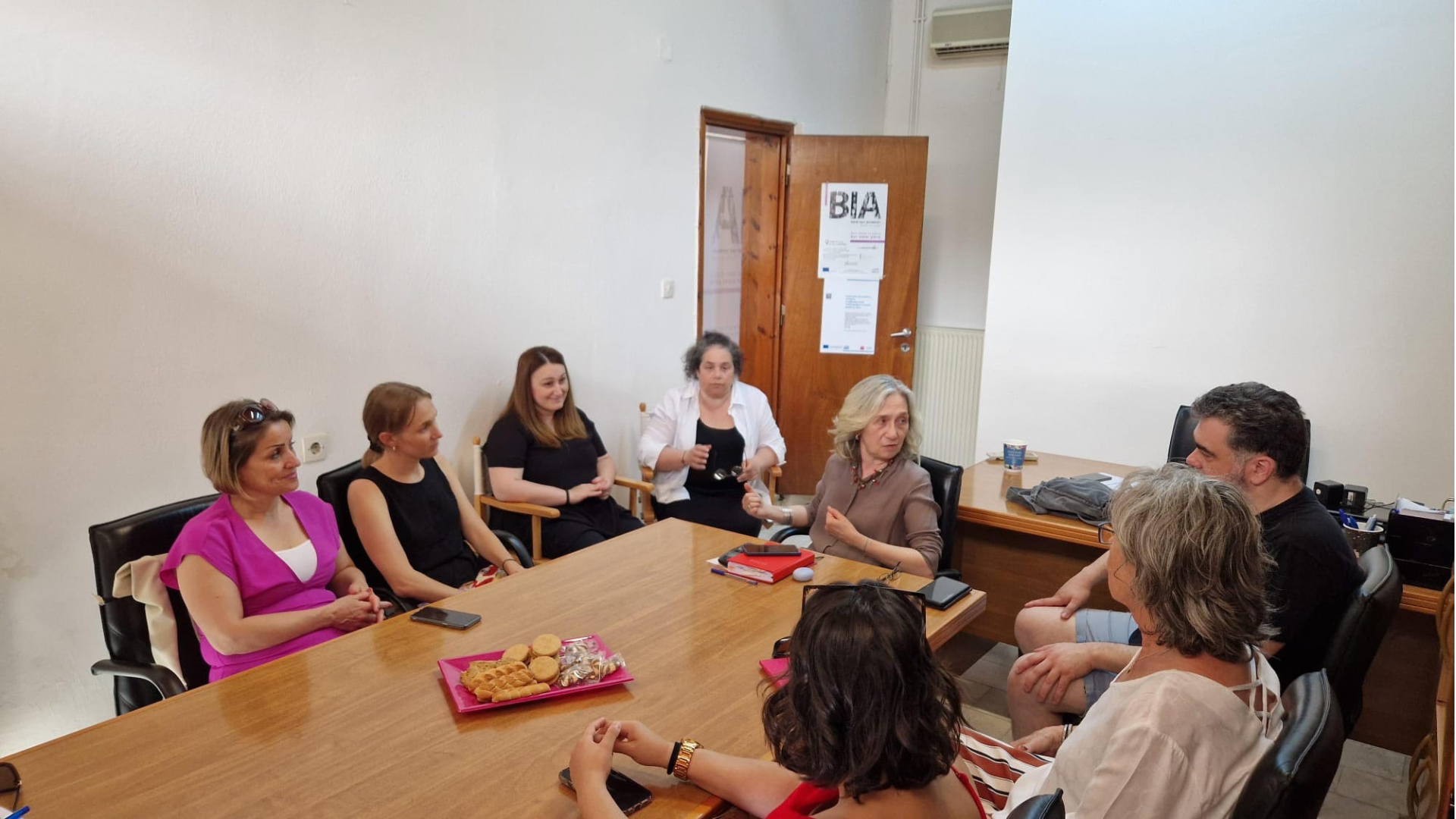What are the women’s needs? Migrant women, particularly those who are middle-aged or older, often face numerous challenges when they arrive in Europe. They experience multiple and intersecting forms of discrimination rooted in racism, sexism, and other systems of inequality.
“As an immigrant woman, you are faced with a series of difficulties and setbacks, not to mention devaluation in society, and not least in workplaces. It takes a lot of patience and effort to be accepted as an equal.” (Foreign-born woman from Albania, Sweden)
Need assessment
To thoroughly understand the needs of migrant women and enhance their well-being, we conducted an extensive needs assessment in both Sweden and Austria. This process involved conducting a minimum of eight semi-structured interviews in each country. Semi-structured interviews provided the flexibility needed to explore individual experiences and perspectives in depth. The interview guide was developed with a participatory and inclusive approach, including members of the target group. This was aimed at being culturally sensitive and ensuring that no important information was missed.
Within the project, the WHO definition of mental health was used, understanding mental health as “a state of mental well-being that enables people to cope with the stresses of life, realize their abilities, learn well and work well, and contribute to their community.” It encompasses emotional, psychological, and social well-being, affecting how people think, feel, and act.
What are the women’s needs? – Findings
The perception of mental health among migrant women in Europe often extends beyond the World Health Organization’s standard definition, encompassing broader dimensions such as stress management, cultural adaptation, and overall well-being. For these women, mental health is intricately linked to their ability to integrate into their new environments while maintaining a balanced life.
- Stress-Free and Anxiety-Free Life
Migrant women often describe an ideal life as one free from stress and anxiety. They aspire to adapt smoothly to their new surroundings without the constant pressure of cultural adjustment. As an Afghan woman living in Austria shared, “Health and well-being are essential for every human being. People should always try to keep stress away and focus on their well-being.”
- Optimal Health and Coping with Adversity
Mental health is seen as a key component of overall health, with many women striving for both physical and psychological well-being. A participant from Iran, now residing in Sweden, emphasized, “Mental health can be considered more important than physical health because if I do not feel good mentally, it affects my physical condition.” Migrant women also value resilience, viewing emotional strength and the ability to handle challenges as essential for successful integration.
- Healthy Living and Religious Strength
Many migrant women emphasize the importance of healthy living, which includes eating nutritious foods, exercising, and maintaining a balanced lifestyle. These habits are viewed as foundational for a strong mind and body. For some, faith plays a crucial role in maintaining mental health, offering inner strength and a coping mechanism during tough times.
- The Role of Inclusion in Mental Health
Inclusion into European society is often seen as essential for good mental health. Many women highlight the importance of mastering the local language and understanding societal norms to reduce isolation and foster a sense of belonging. As one woman from North Macedonia stated, “The feeling of belonging to a community and being accepted is crucial for well-being and self-esteem.”
However, several challenges hinder their successful inclusion and impact their mental health:
- Language Barriers: Limited language proficiency is the most significant obstacle, affecting communication, confidence, and social integration. A stateless woman in Austria shared, “I faced some difficulties because of the German language, but after learning German, it became better. Life isn’t easy, though.”
- Employment and Economic Stability: Financial insecurity deeply influences stress levels. Migrant women often struggle with having their professional qualifications recognized, leading to frustration and unfulfilled potential.
- Cultural Differences and Health Issues: Adapting to new cultural norms, understanding healthcare systems, and dealing with initial health problems compound their difficulties. A woman from Iraq, living in Sweden, described the challenge: “Forming relationships with Swedish people is difficult for someone like me, coming from a society that is completely different from Swedish society.”
- Confidence and Societal Acceptance: Language barriers and the fear of discrimination often erode confidence and hinder social integration. A woman from North Macedonia noted, “In order to participate in society, you first need to learn the language at an advanced level, and that takes time and patience.”
- Coping Mechanisms and Support Networks
Migrant women employ various coping mechanisms to manage stress, such as engaging in physical activities, practicing relaxation techniques, attending courses, and seeking professional help despite the stigma. Social support networks, including family, friends, and community organizations, play a vital role in providing emotional support and a sense of belonging.
As one Ukrainian woman living in Austria shared, “To have good mental health, you always need to find a circle of people with whom you have a connection.” These networks are crucial in helping migrant women navigate the challenges of integration and maintain their mental health in a new and often challenging environment.
Disclaimer:
Funded by the European Union. The views and opinions expressed are those of the author(s) only and do not necessarily reflect those of the European Union or the European Education and Culture Executive Agency (EACEA). Neither the European Union nor EACEA can be held responsible for them.


